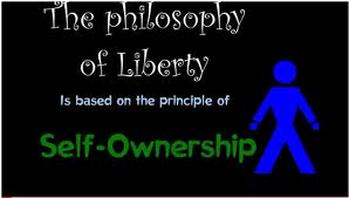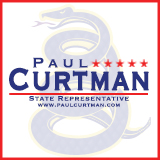
So, really, who does own you? There really only are two answers to this question because either (A) you own yourself in which case you make decisions and have control or (B) someone else or a group of people own and have control of you. I would argue that only you own yourself.
The concept of self ownership says that a person, by virtue of being human, naturally has the right to control his or her own body and remain free from the coercion of others. The particular founding of the United States of America relied heavily on the principle of self ownership as a self-evident truth. In fact, if it we not for the principle of self ownership then the colonies would have had no legal basis for separating from Great Brittan. The political theory of the Divine Right of Kings asserted that self ownership was not a right of the people. Under the Divine Right of Kings the monarch had the legal right to the ownership of his or her subjects an thus could control every aspect of their lives if he or she so choose. The Declaration of Independence replaced the doctrine of the Divine Right of Kings with the principle of self ownership because it stated that “all men are created equal” and "all men" obviously included the British monarch, King George, thus depriving him of his "right" to any authoritarian contol.
The easiest way to illustrate the principle of self ownership is to give you the example of a man who owns a piece of land that sits next to your land. If you want to walk across his land you will have to ask his permission. He does not have to give you permission, but if he does, you will be allowed to use his land. You must ask permission only because the land you want to use does not belong to you; you do not own it and you have no right to it. Let’s say that after three weeks your neighbor decides he does not want you on his property anymore and he tells you to leave and never step foot on his land again. As the owner of the property, he can do this without any reason because he is the owner of the land; he is the supreme authority and he is sovereign over his property. You, however, can walk across, build fences on, dig holes in and burn your land if you choose to because you own it and you have the rights to it.
You do not need to ask permission to exercise your rights to your own property because you have a claim of ownership over it. So here is the main point: You only need to ask permission to use something you don’t own. If you find yourself asking permission to exercise what you're told is a right, then the reality of the matter is that it isn't really a right at all and ownership has been attributed to another person, a group of people or an organization. This principle led our founding fathers to acknowledge and proclaim that as the natural owners of ourselves, we all have a natural right to life, liberty and the pursuit of happiness.
In 1689, a writer named John Locke wrote on this issue “Every man has a property in his own person. This no one has a right to but himself.” Locke, like our founding fathers, believed that as the owners of ourselves, we also the own of the fruits of our labor. In nature we find the raw materials that, in their natural state, have no real value to us. Value comes when we introduce creativity and labor to convert those raw materials into goods that we use to satisfy the necessities of life or pursuit happiness. For example, in the natural world we find apples that will satisfy our hunger or we might find the stones we need to build a house and satisfy our need for shelter. We may say that a stone house would make us happier than a wood house due to the attributes that stone may have over other raw materials such as wood.
The bottom line is that when it comes to physical resources, someone must own them and control them in order to put them to any use. That brings us to the question: Who owns these resources? Since we have determined that each individual owns himself or herself then the individual must rely on their freedom to extract raw materials from nature and that individual is then responsible for using labor and creativity to produce. The other option is that the right of ownership over resources belong to another individual like a king or to a group of people like congress, the IRS or the United Nations. I suppose that these resources could belong to everybody in the world and everybody in the entire human race could be given an equal share of them but I think we can all agree that that is not a reasonable plan, besides, who decides whether or not you get the one/six billionth piece of land on the beachfront in Florida or the one/six billionth piece of land in the middle of the Sahara dessert? In order to make that decision for you someone would basically have to make a claim of ownership over you in order to have the authority to tell you what you can and cannot have thus defeating the purpose of equality of ownership? That is why communistic ideas are bad for property rights and liberty in general. A communist government has nothing in common with the people and the resources and means of production are kept form the people and placed in the hands of another individual, a group of people.
The logical end is that individual ownership and control of property is the natural solution to ensure that our natural resources achieve their highest potential. Frederic Bastiat once said, “Life, liberty and property do not exist because men have made laws. On the contrary it was the fact that life, liberty and property existed before hand that caused men to make laws in the first place.” What Bastiat is saying is that the purpose of government is to protect our individual right to own property from anyone who would attempt to deprive us of property. It is important to note that are own bill of rights is entirely based on the principles of ownership. For example, it is the principle of self ownership from which we derive our natural right to free speech. Simply because we can speak, it is self evident that we have a natural right to speak. All of our natural rights can be attributed to the right to own property and therefore property rights must be protected first and foremost. So here is the question we can ask about each piece of legislation to determine if our government is protecting our property and our liberty: “Is this law going to strengthen the principle of self-ownership and protect my liberty or does this law claim any ownership over me and infringe upon my liberty?”

 RSS Feed
RSS Feed
